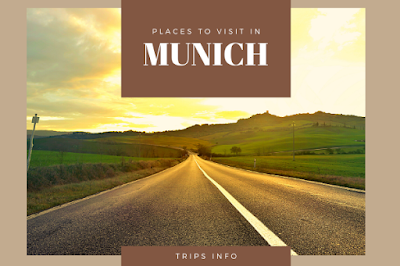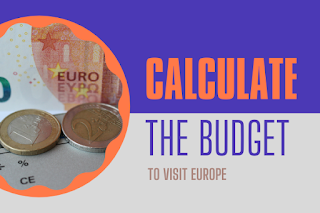An interesting thing of note among the demographics represented in Munich, 49% of them do not identify with any religion. Although Roman Catholics tend to be the predominant religious group in Europe, only 38% of Munich residents identify as such and those numbers have declined in recent years. Ironically, there are still many religious sites in Munich as well as plenty of other types of sites for tourists to enjoy. In this article, we’re going to outline some of the best places to visit while in Munich.
1. Asam’s Church
Asam’s Church was constructed in the mid 1700s by two brothers who vowed to their God that they would build a church as a token of their gratitude for avoiding shipwreck on their journeys.
2. English Garden
Not really as English as it sounds, Munich’s English Garden is quite the international attraction, featuring a Japanese tea house, Chinese pagoda and Greek temple. As Munich’s largest park, it also has paddle boats, a beer garden and many walking trails.
3. Glockenspiel
The Glockenspiel is a century old clock that chimes upon the hour. At noon, the Glockenspiel comes alive with 32 life sized, animated characters re-enacting historic events and a charming little golden bird that sings to signal the end of each performance.
4. Dachau Concentration Camp
The Dachau Concentration Camp was the first of all concentration camps built in Nazi Germany and was the benchmark by which subsequent concentration camps were built. Visitors can walk in the foot steps of camps prisoners via several interactive exhibits.
5. Deutsches Museum
The Deutsches Museum is the biggest science and technology museum in the world. You can find an exhibit on nearly anything ever made or any industry ever explored inside this museum. You might need to visit more than once to see it all.
6. Hofbräuhaus
A trip to Hofbräuhaus is a must for any beer fan. It’s a brewery that’s been in business since the mid 16th century – but now acts as a large pub and is complete with original furnishings carved with the names of visitors from long ago. The Hofbräuhaus has a seating capacity of over 2,600 people.
7. Olympic Park
Built for the 1972 Olympics, the park is an important part of life in Munich today. It’s the site of many cultural and sporting events each year and has many year round tourist attractions to partake in – like walking across the 75,000 square meter tented roof of the stadium or visiting the 300 meter Olympia Tower.
8. Ammersee
Ammersee is one of Munich’s best kept secrets. It’s a large, but widely secluded lake that is popular with locals for windsurfing, swimming, boating and other water activities. Bicycling, walking and picnics are also favorite pastimes on the Ammersee’s sprawling grounds, which is dotted with expensive vacation homes owned by locals. There’s even a ferry that travels the lake during the peak seasons.
9. Starnbergersee
Starnbergersee is one of Bavaria’s largest lake and has been the playground of the royal and elite since the 1600s. Today, some of that ancient opulence is still apparent in the luxury steamboats that take passengers on cruises of the lake. The water is in pristine drinking condition. There are many public parks and beaches dotting the lake as well as some beautiful scenery surrounding it – including some prime examples of baroque palaces that line the area.
10. Roseninsel
Roseninsel is another one of Munich’s best kept secrets. It’s a small island off the coast where King Max II built a summer home. Today, the lake surrounding the island is open to tourists for windsurfing and other lake activities.
11. Marien Square
Marien Square has been Munich’s town square since the city’s inception. Over the years, it’s served as a marketplace, a meeting place and a performance place. Today, it’s not much different. Street performers, shops, restaurants and local vendors still fill the area and locals as well as tourists still go there to spend a leisurely afternoon.
12. Hellabrunn Zoo
Covering just under 100 acres, Hellabrunn Zoo is home to over 4,000 animals. When the zoo opened back in the 1920s, it was recognized as being the world’s first geographically organized zoo – meaning the first of its kind to group animals together by their natural habitats. Today, it’s one of the most popular tourist destinations in the city.
13. Bavarian State Library
The Bavarian State Library is the largest library in Germany and has one of the world’s most impressive collections of historical documents.
14. Maximilian Street
If you have a passion for high end fashion, Maximilian Street is the place to go. Lined with many upscale clothing vendors and boutiques, it’s one of the more posh areas of the city.
15. Ice Skating
If you visit Munich during the winter months, do not miss the chance to go ice skating in the city’s center on a public rink that the town provides each year.
16. BMW Plant and Museum
Here you can learn all about the history of this luxury car as well as tour the facilities where they are made. There is also a museum on the premises showcasing some of the cars from various decades.
17. Frauenkirche
Frauenkirche is a massive church located in the heart of Munich. Unmistakeable for its size, its twin towers also set it apart from others. The super neat thing about this church is that you can climb the south tower most of the year to get a panoramic view of the city.
18. Elisabeth Market
The Elisabeth Market is a Bavarian-style farmer’s market, full of locally grown fruits, vegetables and other food items. Candies, handicrafts and household items are some of the items you’ll find for sale in this popular downtown market.
19. Viktualienmarkt
Viktualienmarkt is another farmer’s market type venue in Munich and is both the oldest and most popular with both locals and tourists. Viktualienmarkt got its start in 1807 when King Max I told some vendors to move to the area to ease overcrowding in the nearby town square. Viktualienmarkt has been a hit ever since and continues to grow in size each year. Today, it covers just over five acres.
Travelers to Munich should know that it’s the most expensive city in Germany – so prepare accordingly. There are a few things you can do to shave some dollars off your trip. Beer gardens allow you to bring your own food so you can stock up on picnic items for cheap in the local markets. Also, visit museums on Sunday when most of the state-run facilities offer free admission.
As far as manners go, there are some things you can get away with in other parts of the world that are considerably frowned upon in Germany. For instance, standing closer than an arm’s length or touching someone during a first conversation is considered highly rude and an invasion of privacy. Also, whistling at the end of performances like theater productions or concerts is a sign of dissatisfaction and should be reserved as such. If you disregard crossing signals while walking or throw trash in the streets, you could be subject to hefty fines. English is widely spoken in the city, but it’s still prudent to learn a few important German phrases to help you along on your travels.




